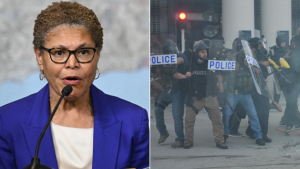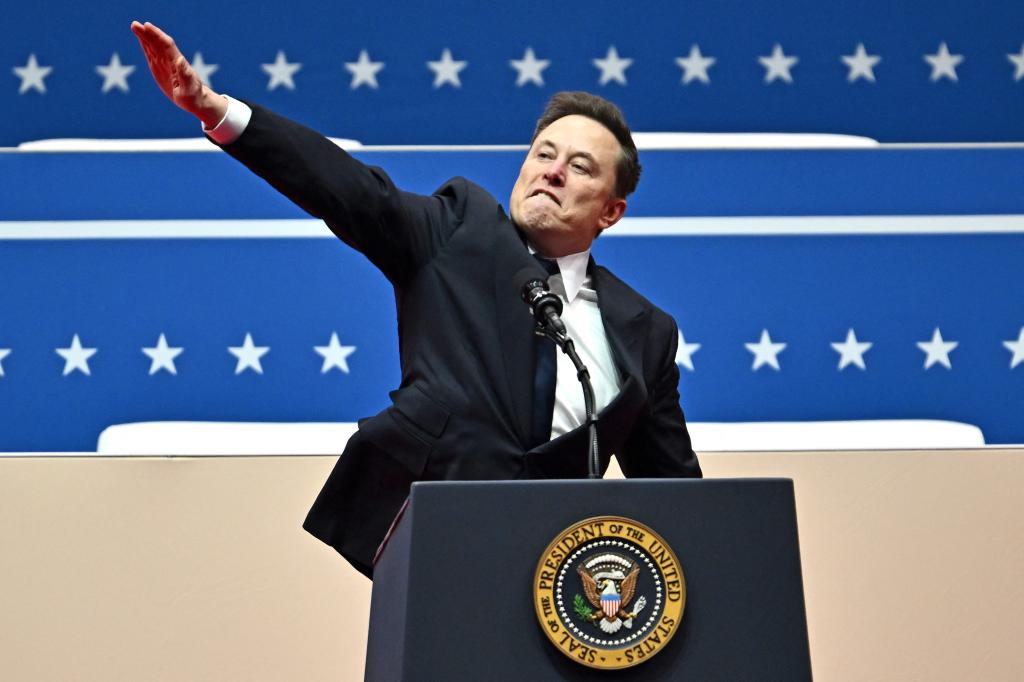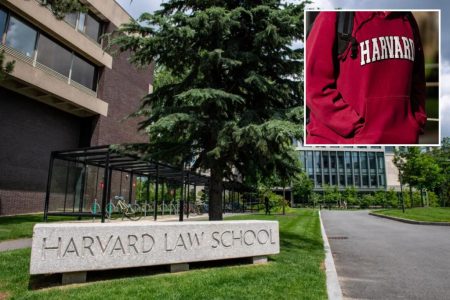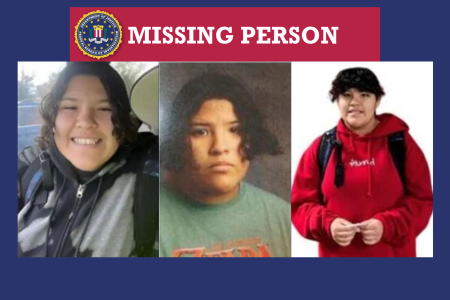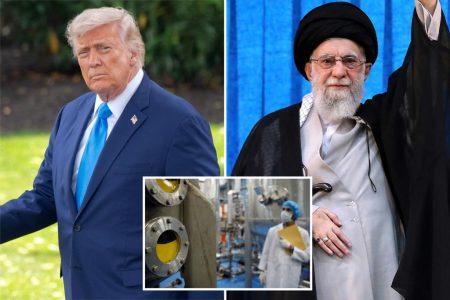Elon Musk’s gesture at President Trump’s inauguration sparked a whirlwind of controversy on social media, with some accusing him of performing a Nazi salute. The gesture in question involved Musk placing his right hand over his heart, followed by extending his arm into the air while addressing Trump supporters. Musk vehemently denied any such intention, dismissing the accusations as tired and worn-out “dirty tricks” employed by those he perceived as left-leaning. He argued that the tendency to label everyone as “Hitler” is an overused and ineffective tactic. His response underscored his belief that the accusations were politically motivated and lacking in substance.
The Anti-Defamation League (ADL), a prominent antisemitism watchdog, played a crucial role in de-escalating the controversy. After reviewing the footage, they issued a statement clarifying that Musk’s gesture appeared to be “awkward” and born out of “enthusiasm” rather than a deliberate Nazi salute. Their intervention effectively shifted the narrative from outright condemnation to a more nuanced interpretation of Musk’s actions. The ADL’s statement emphasized the importance of giving each other “grace” and “the benefit of the doubt,” especially in a politically charged climate, echoing their call for unity and understanding. Musk publicly thanked the ADL for their assessment, further reinforcing their interpretation of events.
The incident occurred during a particularly sensitive time, with Trump’s return to the White House after a period of political upheaval. The ADL acknowledged this heightened sensitivity, noting that many were “on edge.” This context, they suggested, contributed to the misinterpretation of Musk’s gesture. Musk, known for his sometimes unconventional behavior, may have unintentionally exacerbated the situation with his enthusiastic display. The incident highlights how easily actions can be misinterpreted and amplified in the current social media landscape.
The ADL’s statement further emphasized the inflammatory nature of contemporary politics, exacerbated by the echo chambers of social media. They stressed the need for all sides to exercise restraint and avoid hasty judgment, urging a collective “breath” to allow for clearer understanding and reasoned dialogue. The incident served as a reminder of the volatile nature of online discourse, where accusations can rapidly escalate and spiral out of control. The ADL’s call for calm and unity was a timely reminder of the importance of fostering respectful communication and seeking common ground amid political differences.
Musk’s defense and the ADL’s subsequent statement underscore the challenges of interpreting gestures and intentions in a highly polarized environment. While some viewed Musk’s gesture with suspicion, others, including the ADL, saw it as an awkward but ultimately benign expression of support. The incident highlights the importance of careful consideration and the avoidance of rushing to judgment. The ADL’s intervention played a significant role in reframing the narrative and mitigating the potential for further escalation. Their call for understanding and unity resonated in a climate often characterized by division and animosity.
The incident involving Elon Musk’s gesture serves as a microcosm of the broader challenges facing society in the digital age. The rapid dissemination of information, coupled with heightened political polarization, creates a fertile ground for misinterpretations and escalating tensions. The ADL’s response, emphasizing the need for grace and understanding, offers a valuable lesson in navigating this complex landscape. Their call for unity and measured responses serves as a reminder of the importance of fostering dialogue and seeking common ground amid differing perspectives. The incident ultimately underscores the fragility of communication in the digital age and the critical role of institutions like the ADL in promoting tolerance and understanding.
